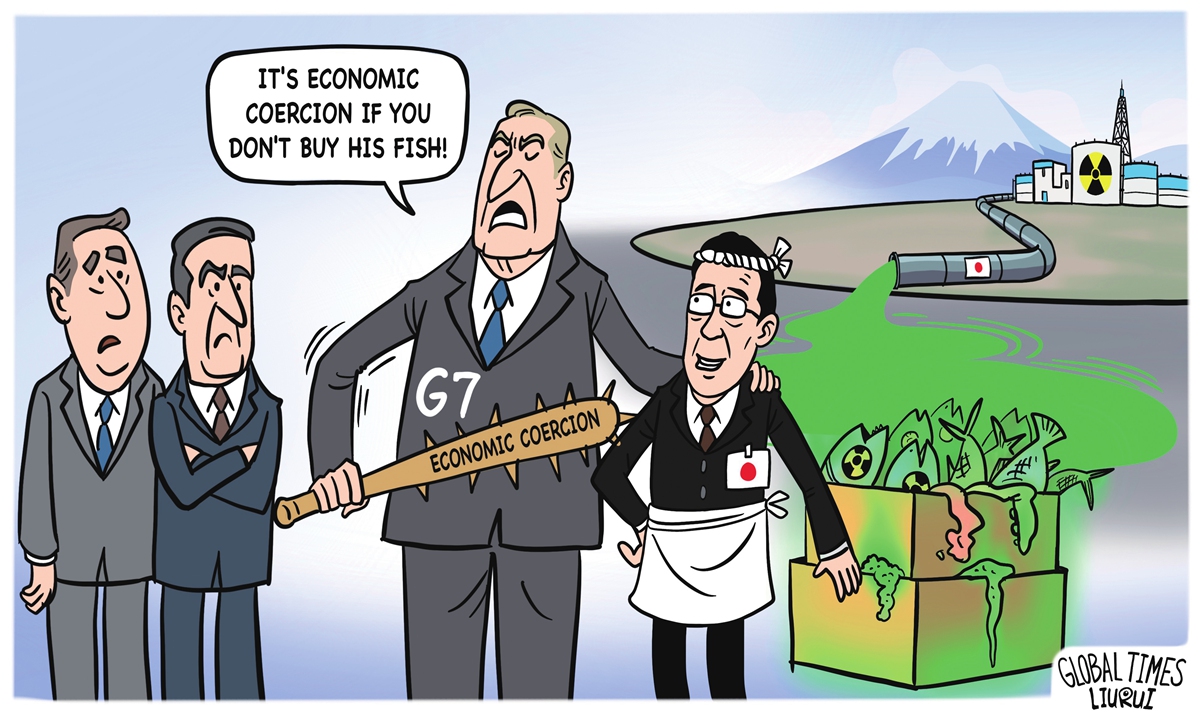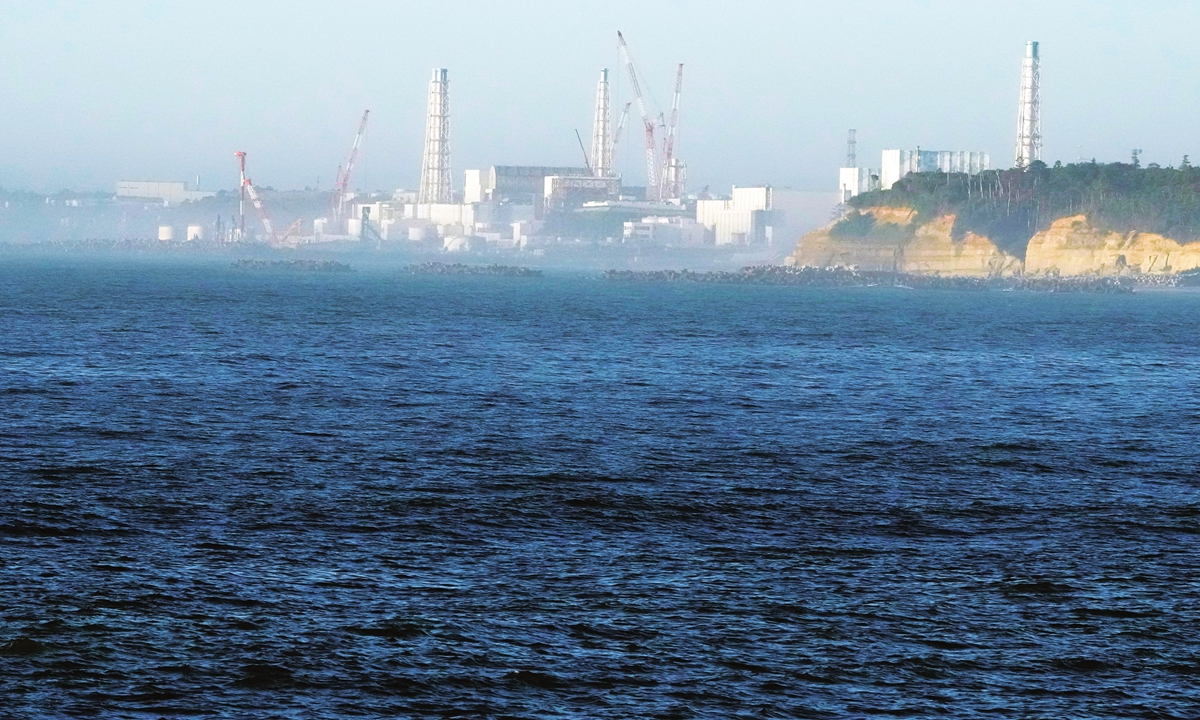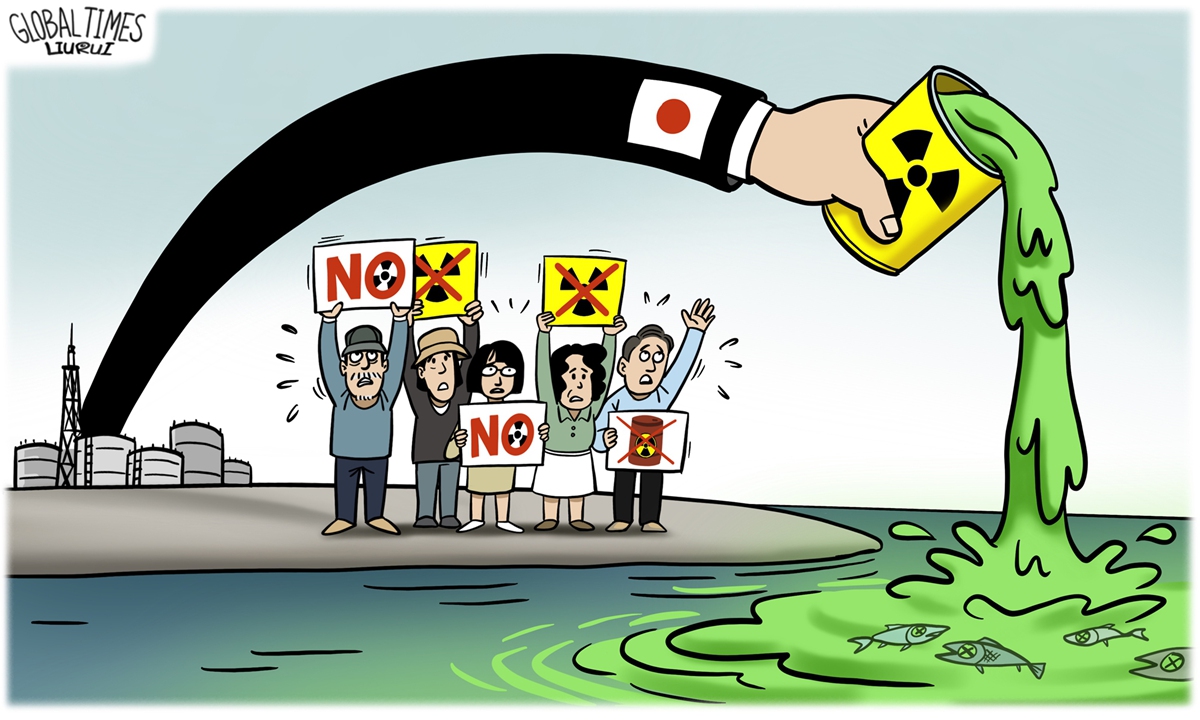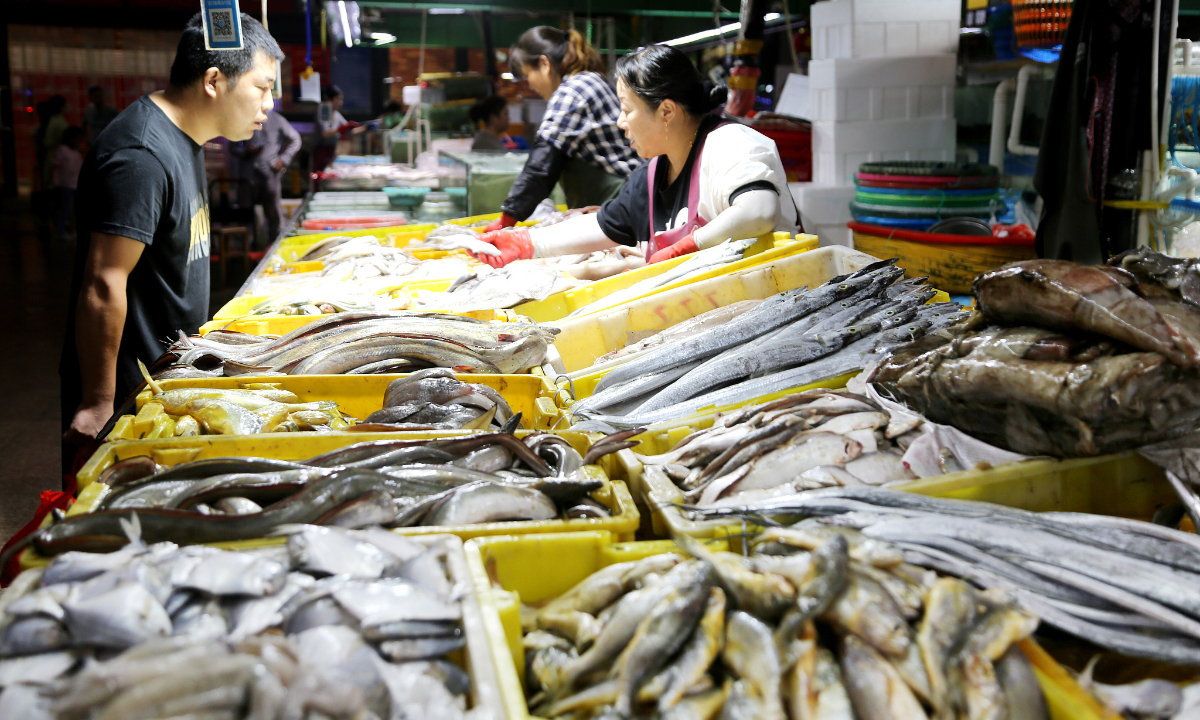
Illustration: Liu Rui/Global Times
The Group of Seven (G7) countries may want to geo-politicize China's ban on aquatic product imports from Japan and make the so-called anti-economic coercion a tool to exert pressure on China.However, such behavior cannot achieve the expected results; on the contrary, it could deliver a further blow to the Japanese fishery industry.
China suspended imports of all aquatic products originating from Japan starting August 24, when Japan began dumping nuclear-contaminated wastewater from the crippled Fukushima Daiichi nuclear power plant into the sea.
In order to prevent nuclear-contaminated Japanese food from entering the Chinese market, the ban was an emergency measure to protect food security and the public health. As a responsible country, China takes a serious attitude toward protecting the safety of Chinese consumers, which has nothing to do with the so-called economic coercion.
The ban is an economic issue related to food security. However, by hyping the so-called economic coercion accusations, the G7 countries are seemingly trying to politicize and complicate the ban, using it as a tool to exert pressure on China. It should be made clear that it is not China, but the G7 and some Western countries, that want to politicize such a food security issue, and their behavior will undermine the international economic order.
If some Westerners believe that they can use the so-called economic coercion accusations to force China to make compromises, they are too naive. China has the right to protect food security and the health of its people from being threatened by Japan's dumping of the nuclear-contaminated wastewater.
Any country, including China, has the obligation to safeguard the economic order based on international laws. Politicizing economic issues has become a common means used by Western countries to disrupt the global economic order and thus should be fiercely resisted.
As reported by the South China Morning Post, the G7 countries called on Sunday for the "immediate repeal" of import curbs on Japanese food products, a reference to China's restrictions after Japan began dumping nuclear-contaminated wastewater into the sea. Japan's fishing industry is hit hard with falling prices and growing uncertainty, as China is the largest single market for Japanese seafood exports at 87.1 billion yen ($600 million) last year.
However, what the G7 and Western countries care about is not the livelihoods of ordinary Japanese fishermen, but how to benefit from politicizing economic issues and suppressing China.
While these countries remain silent or even provide support for Japan's dumping of the nuclear-contaminated wastewater, their fishing companies are attempting to occupy the market room lost by Japanese companies in the Chinese market after the import restrictions.
According to media reports, foreign companies are actively tapping into the massive Chinese seafood market, as Japanese seafood exports to China fell after August 24 amid continued fears of contamination. This is a normal result, and it should be noted that China welcomes any company to share the dividends of the Chinese market, as long as these companies comply with Chinese laws and respect the interests of Chinese consumers.
China is a major seafood consumer in the world. In addition, the country has emerged as a major processing and trade hub in global seafood supply chains, with much of the world's fish catch imported and processed for re-export.
If Japan wants to share the market dividend of China, relying on political pressure from Tokyo or collaborating with other G7 countries will not achieve its goal. As a problem maker, Japan should reflect on itself and stop dumping the nuclear-contaminated wastewater into the sea.
In disregard of the strong doubts and opposition of the international community, the Japanese government blatantly shifts the risks of nuclear pollution to neighboring countries, including China, and the international community, and puts its interests above the long-term well-being of people in the region and around the world. The mistake is on the Japanese side. Japan should be responsible for the losses suffered by Japanese fishermen.
If Japan and some Western countries want to shift the blame to China and use the so-called economic coercion as an excuse to force China to make compromises, then this will only further complicate the situation, disrupt the international economic trade order, and cause greater losses to Japanese fishermen and the Japanese economy.
It is hoped that Japan can return to the right track of solving the problem, which is to stop dumping nuclear-contaminated wastewater into the sea. The longer Japan delays, the greater the losses will be suffered by Japanese fishermen.



